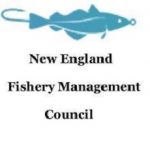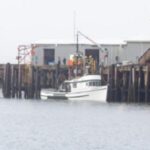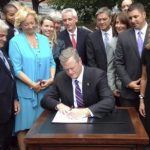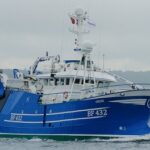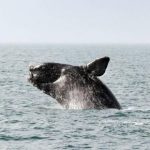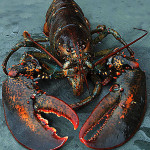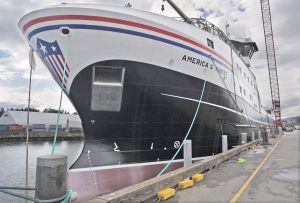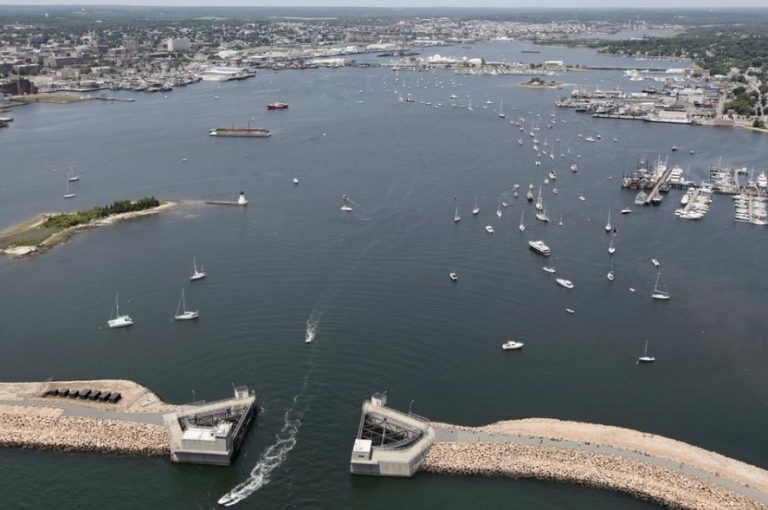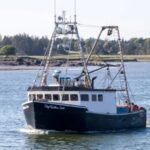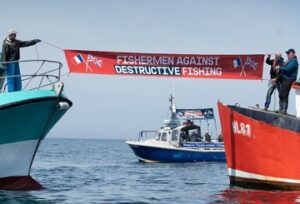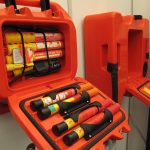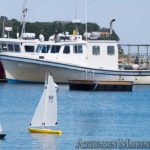Tag Archives: Shetland
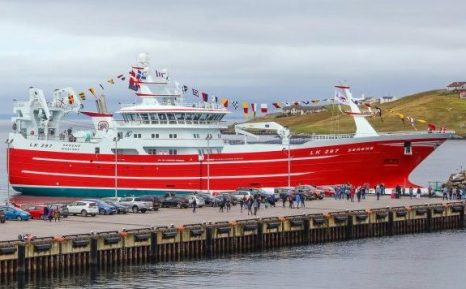
Big turnout to welcome the eighth Serene to Whalsay
Crowds gathered at Symbister on Saturday afternoon to watch the arrival of Whalsay’s latest pelagic trawler, the 82-metre Serene. The boat, the latest of eight to bear the same name, was built at the Karstensens shipyard in Denmark. She is understood to be Shetland’s largest fishing vessel so far. Skipper Bobby Polson and partners signed the order for the new boat at the Skipper Expo trade show in Aberdeen two years ago. >click to read<09:28
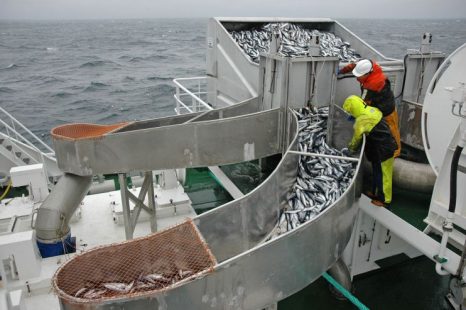
The value of fish landings in Shetland last year was up by 30 per cent compared to 2015
Seventy two thousand tonnes of fish worth around £79 million was landed in Shetland, representing a one per cent decrease in quantity on 2015. Nearly 70 per cent of all landings were of pelagic species, which enjoyed a rise in price, while demersal accounted for around one quarter. Mackerel was the most landed fish, with over 40,000 tonnes coming into Shetland, while herring amounted to 9,471 tonnes. But 2016 saw the lowest amount of pelagic species landed in Shetland in the last five years, with around 8,000 tonnes more brought into the isles in 2014. click here to read the story 17:42
For Argyll: ‘a quarter of England’s entire whitefish quota is now owned by a single Dutch super trawler’
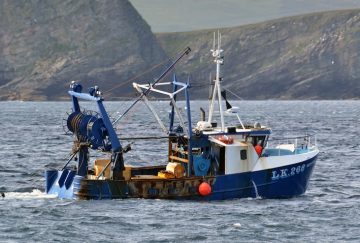 From the article: Back in 1970 when Britain applied to join the EU [then EEC], a new law was passed a mere six hours before official acceptance of our application. The Common Fisheries Policy [CFP], which confers ‘equal access to fishing grounds for all EU countries’, thus became part of the body of existing EU law, the so-called ‘Acquis Communautaire’, which new members are obliged to accept. The Heath government folded and accepted the heist, taking Britain into the EU on 1st, January 1973, thereby ceding control of Shetland’s [and UK] legendary fishing grounds to the EU.,, Fishermen must now land any unwanted catch ashore to be dumped – but it cannot be sold for human consumption and they are not allowed to give it away, not even to schools, hospitals or care homes. This is lunacy. At least, discarding fish benefits the marine food chain by removing large predators from the sea and returning them dead, for consumption by other fish and small marine creatures. However, any such benefits are lost if the fish are ferried ashore and dumped to landfill. Read the story here 10:21
From the article: Back in 1970 when Britain applied to join the EU [then EEC], a new law was passed a mere six hours before official acceptance of our application. The Common Fisheries Policy [CFP], which confers ‘equal access to fishing grounds for all EU countries’, thus became part of the body of existing EU law, the so-called ‘Acquis Communautaire’, which new members are obliged to accept. The Heath government folded and accepted the heist, taking Britain into the EU on 1st, January 1973, thereby ceding control of Shetland’s [and UK] legendary fishing grounds to the EU.,, Fishermen must now land any unwanted catch ashore to be dumped – but it cannot be sold for human consumption and they are not allowed to give it away, not even to schools, hospitals or care homes. This is lunacy. At least, discarding fish benefits the marine food chain by removing large predators from the sea and returning them dead, for consumption by other fish and small marine creatures. However, any such benefits are lost if the fish are ferried ashore and dumped to landfill. Read the story here 10:21
For Shetlanders the sea is a natural environment, but never a friendly one
 Most people in Shetland live and work within sight and sound of the sea. On clear summer days – almost 20 hours long, in June – it lies flat out to a distant horizon and children play on great wide beaches; from the cliff-tops, fish and diving birds are clearly visible even several metres below the surface. It’s not like that now. At this time of year and into the winter, during the great gales that sweep across the Atlantic, the sea climbs steeply into the howling wind as it hits land, and sheets of spray sweep across our fields and moors. Read the rest here 11:34
Most people in Shetland live and work within sight and sound of the sea. On clear summer days – almost 20 hours long, in June – it lies flat out to a distant horizon and children play on great wide beaches; from the cliff-tops, fish and diving birds are clearly visible even several metres below the surface. It’s not like that now. At this time of year and into the winter, during the great gales that sweep across the Atlantic, the sea climbs steeply into the howling wind as it hits land, and sheets of spray sweep across our fields and moors. Read the rest here 11:34
Shetland’s fishing leaders want better governance
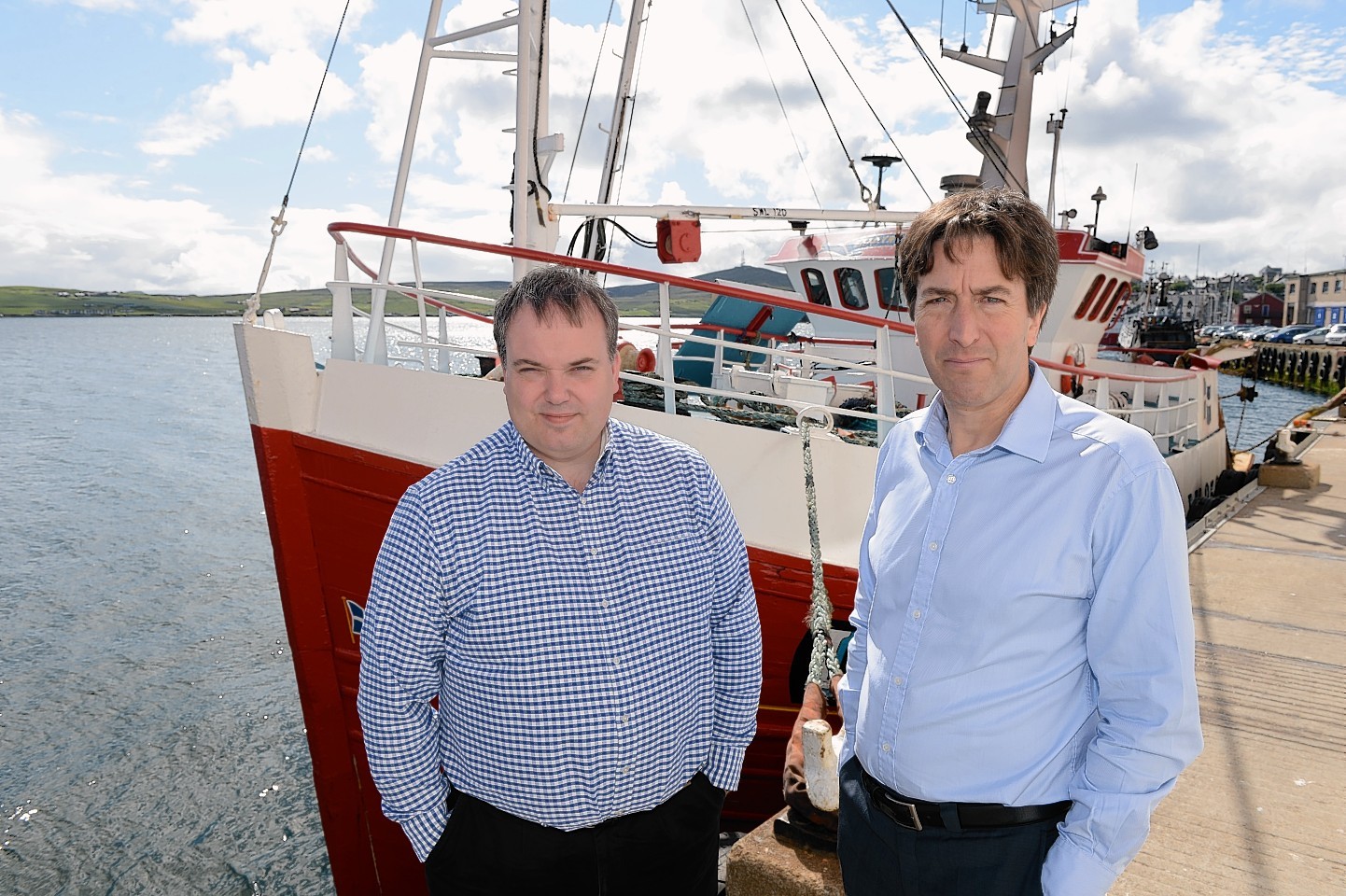 But all is not well in the fishing ports of Lerwick and Scalloway, as Simon Collins and Brian Isbister – the chief executives of Shetland Fishermen’s Association and Shetland Fish Producers’ Organisation respectively – will soon tell you. They even talk of betrayal by governments in Edinburgh, London and Brussels.,, They called for the recognition of traditional fishing rights, designation of the isles as “small offshore islands which are dependent on fishing” – as set out in the reformed Common Fisheries Policy – and provision for an “opt-out” for local vessels from regulatory and management powers devolved to Scotland. Read the rest here 11:32
But all is not well in the fishing ports of Lerwick and Scalloway, as Simon Collins and Brian Isbister – the chief executives of Shetland Fishermen’s Association and Shetland Fish Producers’ Organisation respectively – will soon tell you. They even talk of betrayal by governments in Edinburgh, London and Brussels.,, They called for the recognition of traditional fishing rights, designation of the isles as “small offshore islands which are dependent on fishing” – as set out in the reformed Common Fisheries Policy – and provision for an “opt-out” for local vessels from regulatory and management powers devolved to Scotland. Read the rest here 11:32
FISHING leaders in Shetland, Orkney and the Western Isles move to protect fishing communities
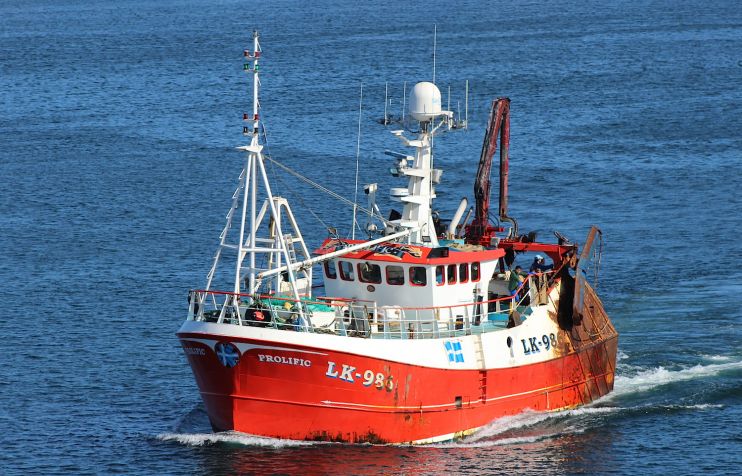 Commercial fishing is economically and culturally vital to island communities with around a quarter of the industry based in Shetland, Orkney and the western isles. Secretary of the Orkney Fisheries Association, Fiona Matheson, said: “As everyone in the islands knows, fishing is an absolutely essential part of economic life and it’s time this was reflected in devolved powers for the industry. The move follows the example of the Our Islands Our Future initiative, which is seeking for more political decision-making powers to be devolved to the islands. Read the rest here 14:08
Commercial fishing is economically and culturally vital to island communities with around a quarter of the industry based in Shetland, Orkney and the western isles. Secretary of the Orkney Fisheries Association, Fiona Matheson, said: “As everyone in the islands knows, fishing is an absolutely essential part of economic life and it’s time this was reflected in devolved powers for the industry. The move follows the example of the Our Islands Our Future initiative, which is seeking for more political decision-making powers to be devolved to the islands. Read the rest here 14:08

































